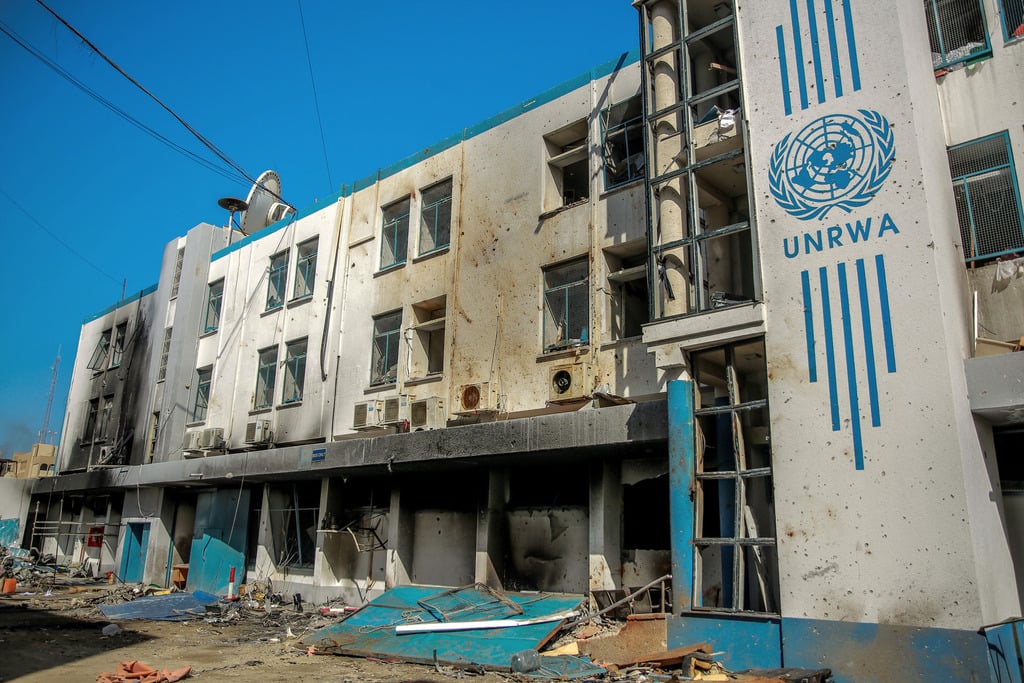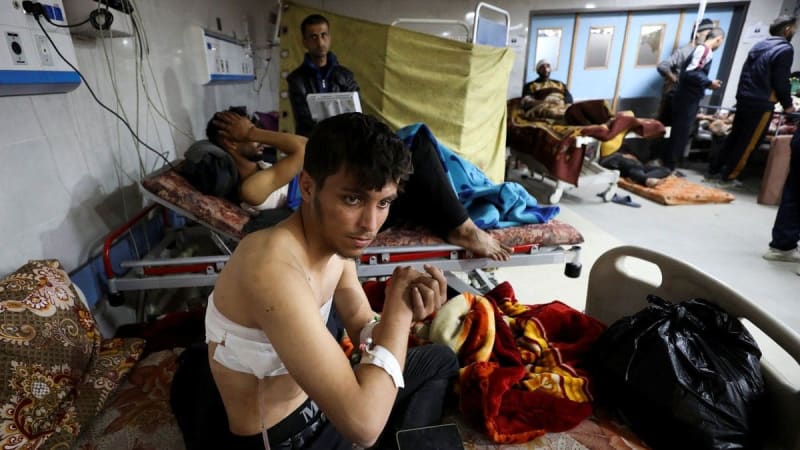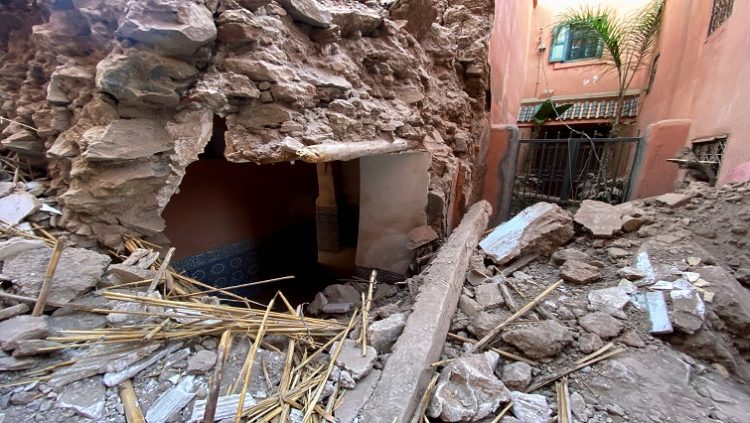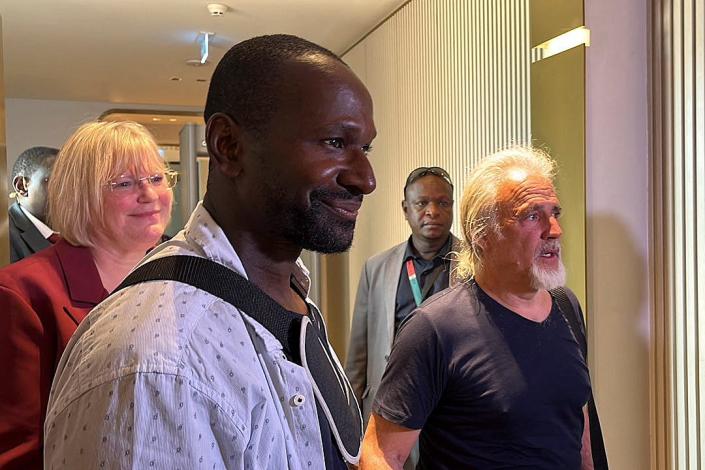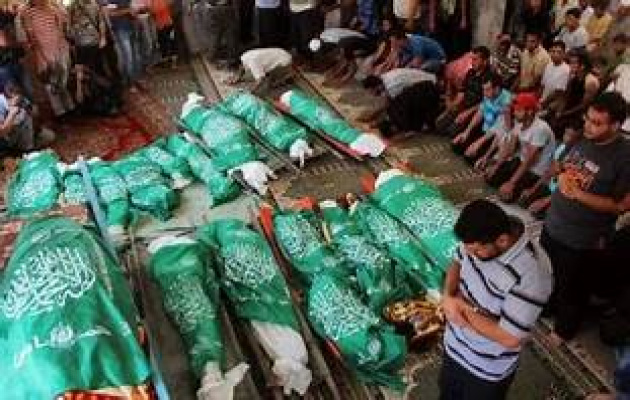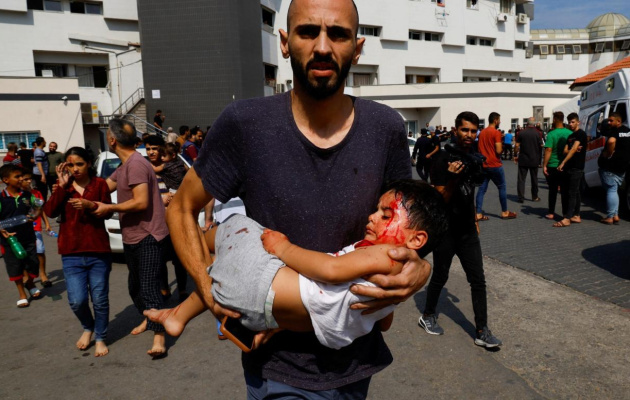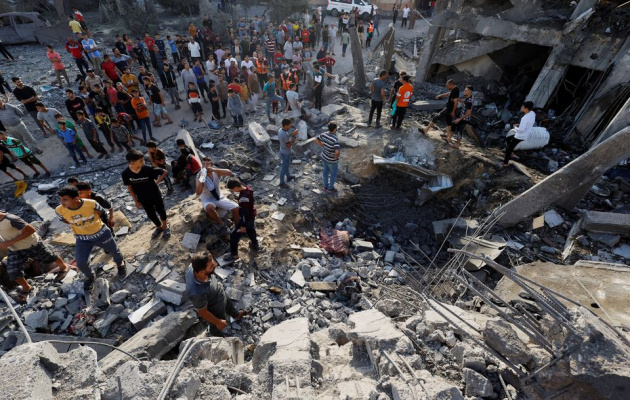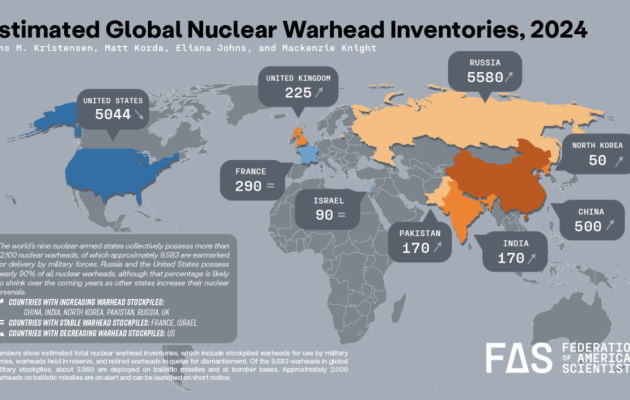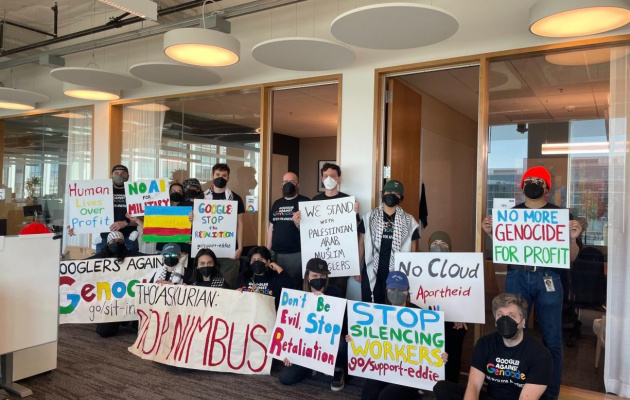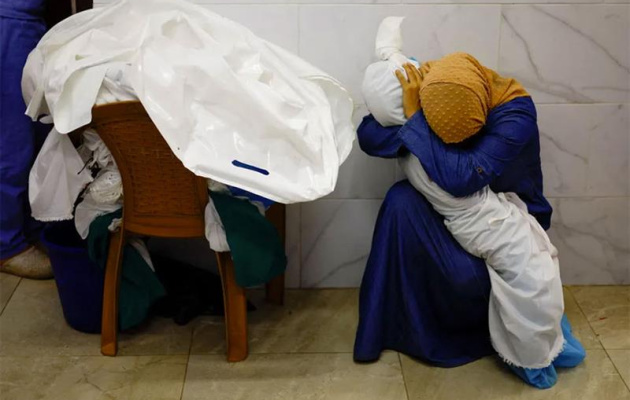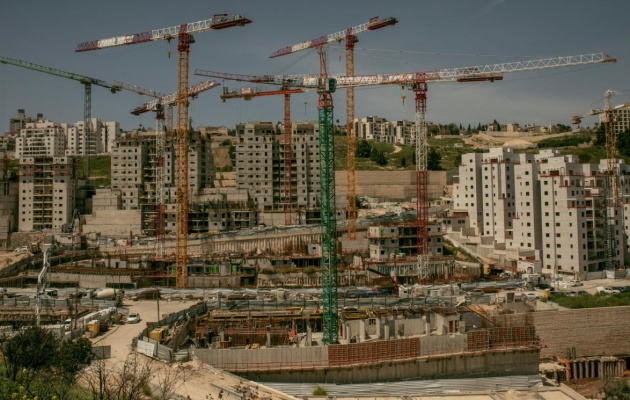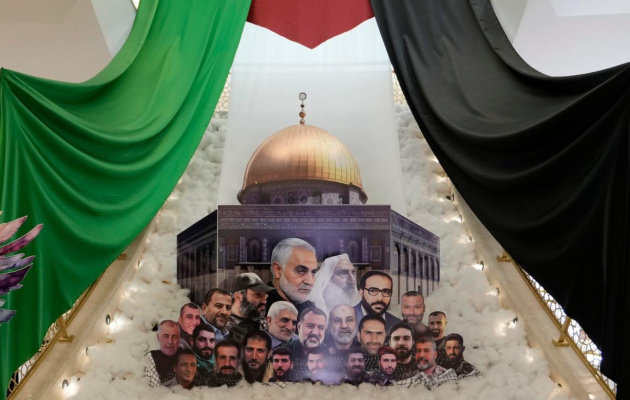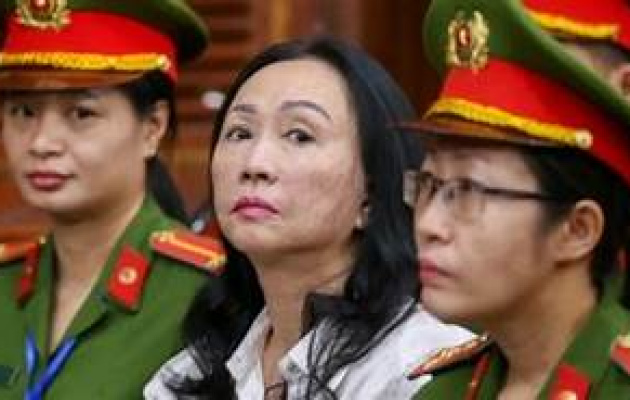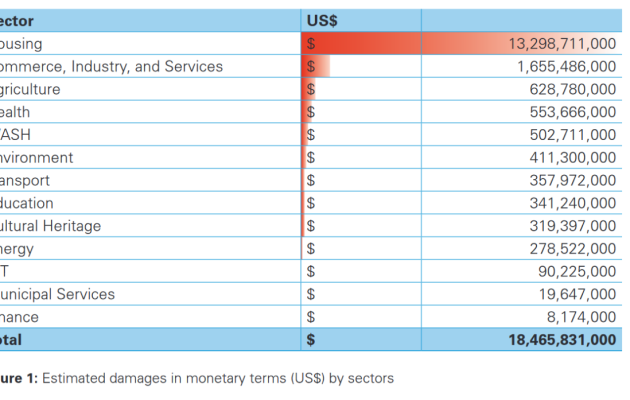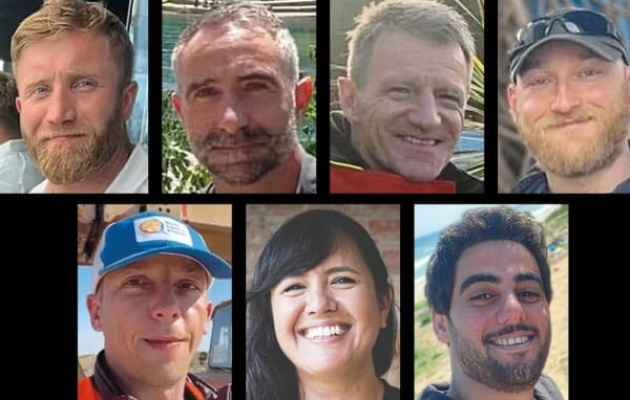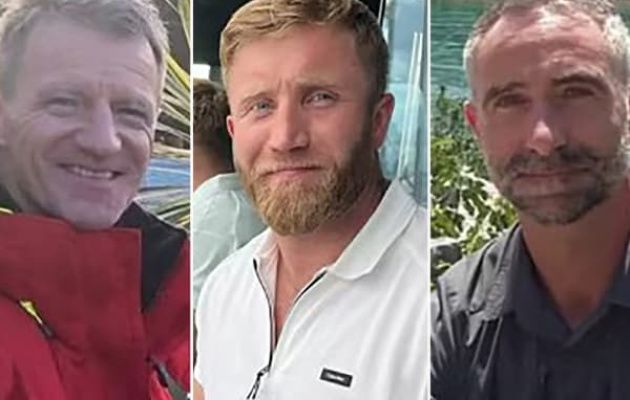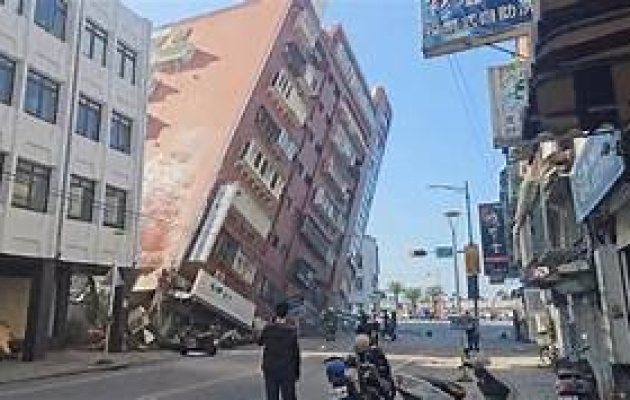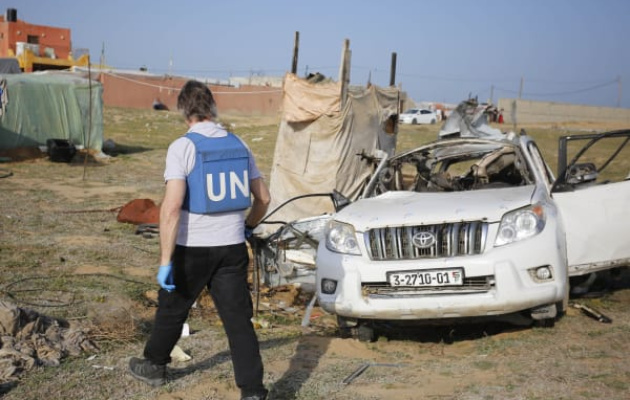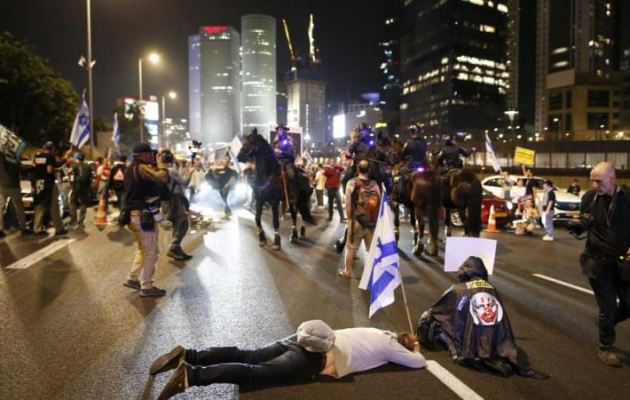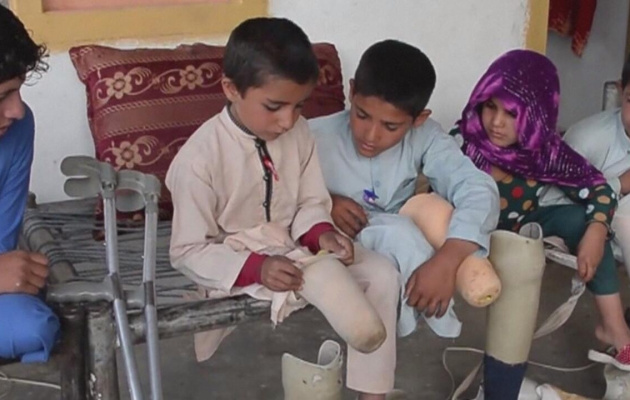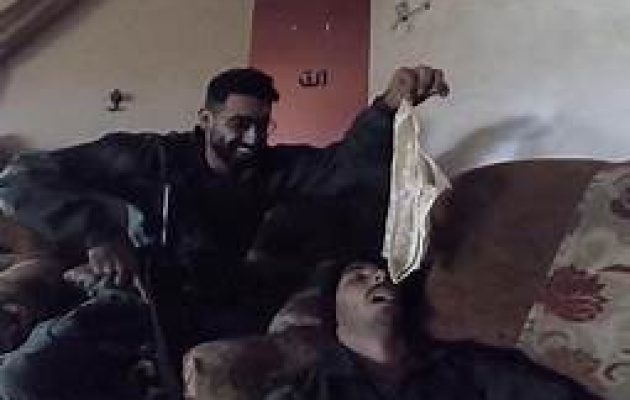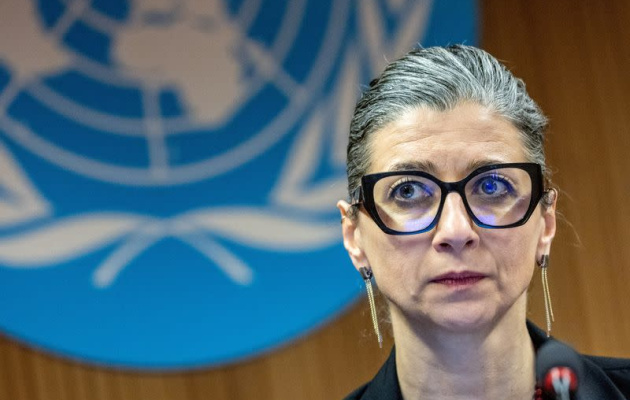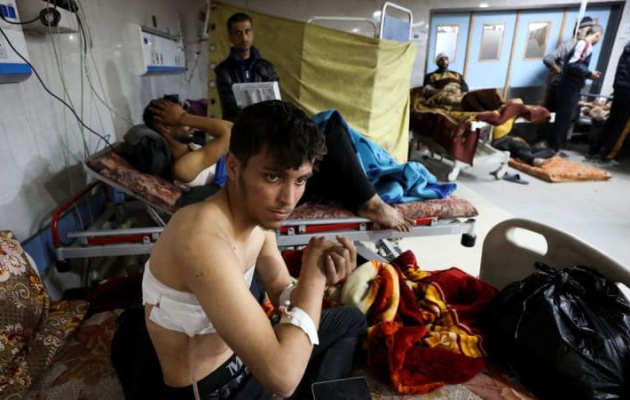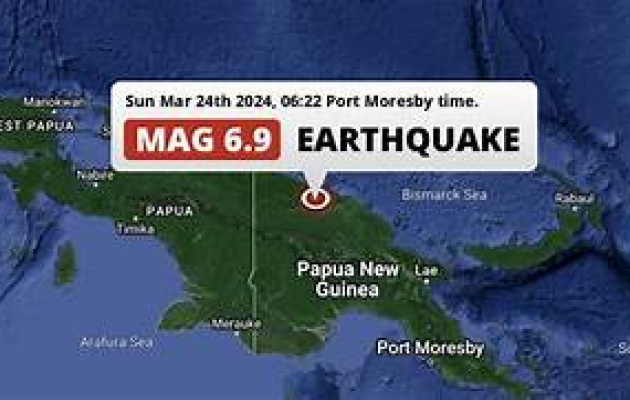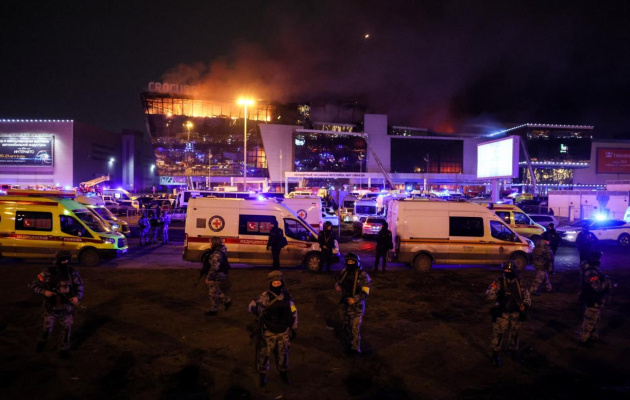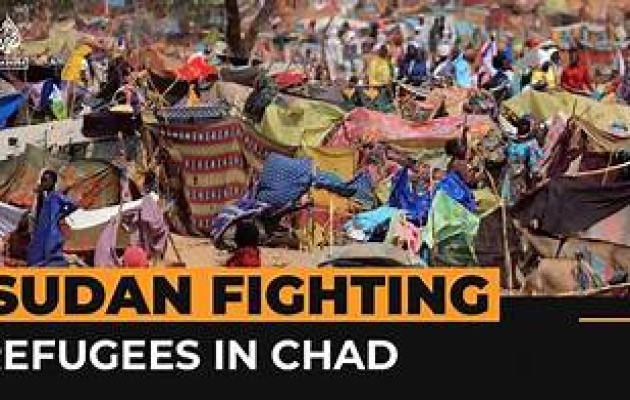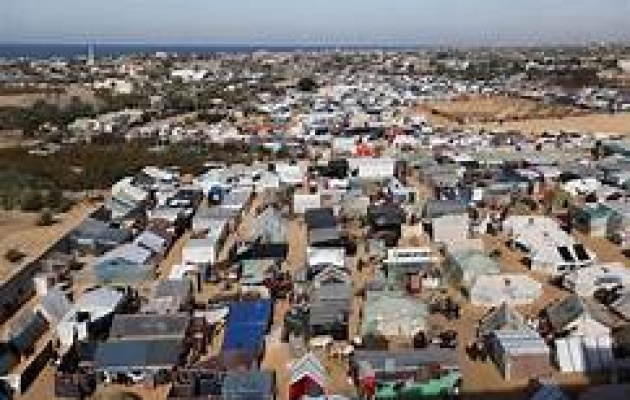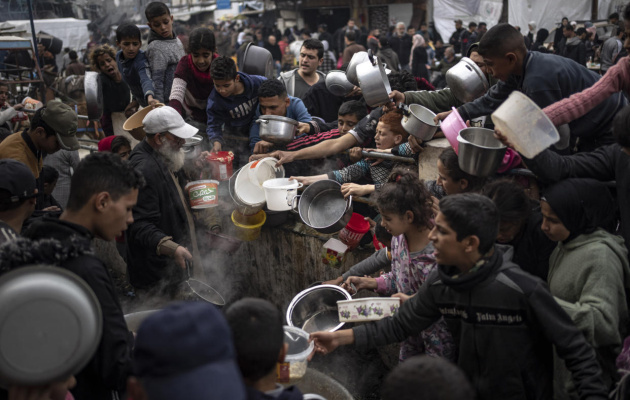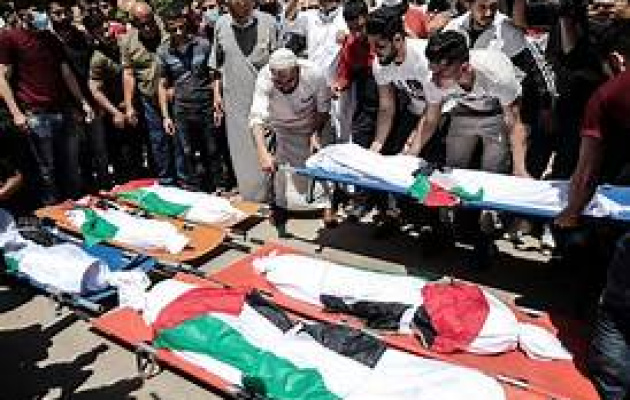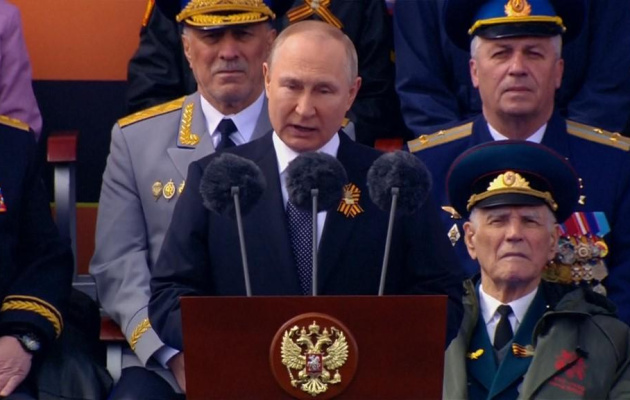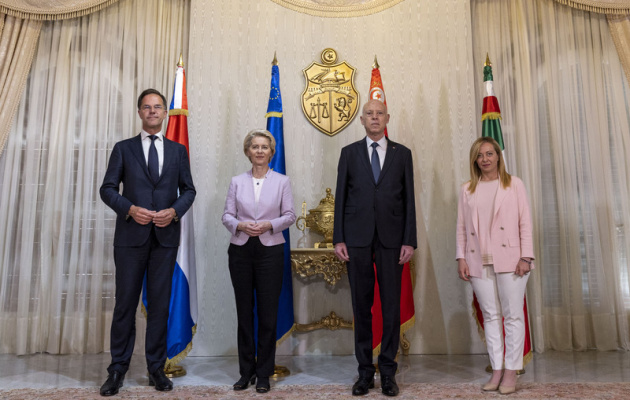Home
UNRWA says Israel coerced some agency employees to falsely admit Hamas links
- Details
- Written by northsouth
- Category: content
- Hits: 193
GENEVA - The U.N. agency for Palestinian refugees said some employees released into Gaza from Israeli detention reported having been pressured by Israeli authorities into falsely stating that the agency has Hamas links and that staff took part in the Oct. 7 attacks.
The assertions are contained in a report by the U.N. Relief and Works Agency (UNRWA) reviewed by Reuters and dated February 2024 which detailed allegations of mistreatment in Israeli detention made by unidentified Palestinians, including several working for UNRWA.
UNRWA communications director Juliette Touma said the agency planned to hand the information in the 11-page, unpublished report to agencies inside and outside the U.N. specialised in documenting potential human rights abuses.
"When the war comes to an end there needs to be a series of inquiries to look into all violations of human rights," she said.
The document said several UNRWA Palestinian staffers had been detained by the Israeli army, and added that the ill-treatment and abuse they said they had experienced included severe physical beatings, waterboarding, and threats of harm to family members.
"Agency staff members have been subject to threats and coercion by the Israeli authorities while in detention, and pressured to make false statements against the Agency, including that the Agency has affiliations with Hamas and that UNRWA staff members took part in the 7 October 2023 atrocities,” the report says.
UNRWA declined a Reuters request to see transcripts of its interviews containing allegations of coerced false confessions.
In addition to the alleged abuse endured by UNRWA staff members, Palestinian detainees more broadly described allegations of abuse, including beatings, humiliation, threats, dog attacks, sexual violence, and deaths of detainees denied medical treatment, the UNRWA report said.
OPERATIONS IN CRISIS
UNRWA, which provides aid and essential services to Palestinian refugees, is at the centre of a crisis over Israeli allegations made in January that 12 of its 13,000 staff in Gaza took part in the Oct. 7 Hamas attack on Israel.
The Israeli accusations led 16 countries including the United States to pause $450 million in UNRWA funding, throwing its operations into crisis. UNRWA fired some staff members, saying it acted in order to protect the agency's ability to deliver humanitarian assistance, and an independent internal U.N. investigation was launched.
Norway, which has continued to finance the agency, said on March 6 that many countries that paused their funding are likely having second thoughts and payments could resume soon.
Reuters could not independently confirm the accounts of coercion of UNRWA staff and mistreatment of detainees, although the allegations of ill-treatment accord with descriptions by Palestinians freed from detention in December, February and March reported by Reuters and other news media.
Asked by Reuters for comment on the range of allegations in the report, an Israeli military spokesperson didn't specifically respond to allegations of UNRWA staff being coerced, but said the Israeli Defense Forces acts in accordance with Israeli and international law to protect the rights of the detainees.
Concrete complaints of inappropriate behaviour are forwarded to the relevant authorities for review, and an investigation is conducted for each death of a detainee by the military police, the spokesperson said, adding Israel denies general and unsubstantiated claims about sexual abuse of detainees.
The spokesperson said freed detainees are subject to Hamas' control and can be forced to denounce Israel or risk "harm".
Responding to that assertion about the detainees' credibility, Touma said the report was based on "first-hand testimonies that people told us. In some cases there were clearly some physical impact on people's bodies. And also psychological impact. So this is what's also been documented."
UNRWA provides education, health and relief services to about 5.7 million registered Palestinian refugees around the Middle East. The U.S. has been by far the biggest donor to its $1.4 billion annual budget.
The Israeli army levelled new accusations at UNRWA on March 4, saying it employed over 450 "military operatives" from Hamas and other armed groups, and that Israel has shared this intelligence with the United Nations.
INTERROGATION
Later that day, the head of UNRWA warned of "a deliberate and concerted campaign" aimed at ending the agency's work, citing comments by Israeli Prime Minister Benjamin Netanyahu and destruction of the agency's infrastructure in Gaza.
Asked about the latest Israeli accusations, Touma said UNRWA encouraged any entity with information on the allegations against UNRWA staff to share it with the investigation, which is being conducted by a U.N. oversight body.
Touma told Reuters the document was based on interviews the agency had conducted with dozens of Palestinians freed from Israeli detention to whom UNRWA provided assistance.
She said she could not provide a more detailed figure and did not know how many of the detainees made the allegations about abuse or being coerced into saying UNRWA has Hamas links.
The report focuses on detainees who were taken out of Gaza for extended periods of interrogation before being returned to Gaza via the Kerem Shalom crossing from December to February.
ISRAEL SEEKS UNRWA'S CLOSURE
The report said UNRWA had documented the release of 1,002 detainees at Kerem Shalom aged from six to 82 years-old as of Feb. 19.
The Hamas-led Oct. 7 assault killed 1,200 people in Israel and resulted in another 253 being abducted, according to Israeli tallies. More than 30,000 people have been killed in the Gaza Strip during the Israeli offensive launched in response, according to health authorities in Hamas-controlled Gaza.
UNRWA has condemned the Oct. 7 attacks, saying the Israeli allegations against the agency - if true - are a betrayal of U.N. values and of the people UNRWA serves.
The U.N. investigators said on Feb. 29 they expected to receive materials soon from Israel relating to its accusations that UNRWA staffers are members of Hamas.
Israel says UNRWA should be shut down.
Reuters has previously interviewed Palestinians detained by Israel during the conflict who have reported mistreatment. They include three men who said they and fellow detainees had been beaten, stripped to their underwear, and burnt with cigarettes.
The copy of the report viewed by Reuters did not contain any photographs or identify any of the detainees by name.
Gunfire accounted for 80% of wounds at hospital from aid convoy bloodshed, Doctor
- Details
- Written by northsouth
- Category: content
- Hits: 278
By WAFAA SHURAFA and BASSEM MROUE
RAFAH, Gaza Strip — The head of a Gaza City hospital that treated some of the Palestinians wounded in the bloodshed surrounding an aid convoy said Friday that more than 80% had been struck by gunfire, suggesting there was heavy shooting by Israeli troops.
At least 115 Palestinians were killed and more than 750 others injured Thursday, according to health officials, when witnesses said nearby Israeli troops opened fire as huge crowds raced to pull goods off an aid convoy. Israel said many of the dead were trampled in a crowd surge that started when desperate Palestinians in Gaza rushed the aid trucks. Israel said its troops fired warning shots after the crowd moved toward them in a threatening way.
Dr. Mohammed Salha, the acting director of Al-Awda Hospital, told The Associated Press that of the 176 wounded brought to the facility, 142 had gunshot wounds and the other 34 showed injuries from a stampede.
He couldn’t address the cause of death of those killed, because the bodies were taken to government-run hospitals to be counted.
Dr. Husam Abu Safyia, director of Kamal Adwan Hospital, said the majority of the injured taken there had gunshot wounds in the upper part of their bodies, and many of the deaths were from gunshots to the head, neck or chest.
The bloodshed underscored how the chaos of Israel’s almost 5-month-old offensive has crippled the effort to bring aid to Gaza’s 2.3 million Palestinians, a quarter of whom the United Nations says face starvation.
The U.N. and other aid groups have been pleading for safe corridors for aid convoys, saying it has become nearly impossible to deliver supplies in most of Gaza because of the difficulty of coordinating with the Israeli military, ongoing hostilities and the breakdown of public order, including crowds of desperate people who overwhelm aid convoys.
U.N. officials say hunger is even worse in the north, where several hundred thousand Palestinians remain even though the area has been isolated and mostly leveled since Israeli troops launched their ground offensive there in late October. U.N. agencies haven’t delivered aid to the north in more than a month because of military restrictions and lack of security, but several deliveries by other groups reached the area earlier this week.
The United Nations says a U.N. team that visited Shifa Hospital in Gaza City reported “a large number of gunshot wounds” among the more than 200 people still being treated for injuries Friday from Thursday’s chaotic aid convoy scene.
U.N. Secretary-General Antonio Guterres and several European leaders have called for an independent, credible investigation into what happened.
Acknowledging the difficulty of getting aid in, United States President Joe Biden said Friday the U.S. soon will begin airdropping assistance to Gaza and will look for other ways to get shipments in, “including possibly a marine corridor.”
The announcement came hours after a Jordanian plane over northern Gaza dropped packages attached to parachutes, including rice, flour and baby formula.
“Innocent lives are on the line, and children’s lives are on the line. We won’t stand by until we get more aid in there,” Biden said. “We should be getting hundreds of trucks in, not just several.”
Aid officials have said airdrops are an incredibly expensive way of distributing assistance.
“I don’t think the airdropping of food in the Gaza Strip should be the answer today. The real answer is: Open the crossing and bring convoys and bring meaningful assistance into the Gaza Strip,” Philippe Lazzarini, head of the U.N. agency for Palestinian refugees, said Thursday.
Thursday’s convoy wasn’t organized by the U.N. Instead, it appeared to have been monitored by the Israeli military, which said its troops were on hand to secure it and ensure it reached northern Gaza.
United Nations spokesperson Stephane Dujarric said Friday’s convoy was also “coordinated and deconflicted with the Israeli authorities” because they control Gaza.
“We’ve been trying to do that every day,” he said. “We have not been successful every day.”
Thursday’s shooting and bloodshed raise questions about whether Israel will be able to keep order if it goes through with its postwar plans for Gaza.
Israeli Prime Minister Benjamin Netanyahu has put forward a plan for Israel to retain open-ended security and political control over the territory — an effective reoccupation — after Hamas is destroyed. Under the plan, Palestinians picked by Israel would administer the territory, but it’s uncertain if any would cooperate.
That would leave Israeli troops — who, throughout the war, have responded with heavy firepower when they perceive a possible threat — to oversee the population during the massive postwar humanitarian and reconstruction operation envisioned by the international community.
Israel launched its air, sea and ground offensive in Gaza in response to Hamas’ Oct. 7 attack into Israel, in which militants killed around 1,200 people, mostly civilians, and abducted around 250 others. Since the assault began, Israel has barred entry of food, water, medicine and other supplies, except for a trickle of aid entering the south from Egypt at the Rafah crossing and Israel’s Kerem Shalom crossing.
Despite international calls to allow more aid in, the number of supply trucks is far less than the 500 that came in daily before the war.
The Gaza Health Ministry said the Palestinian death toll from the war has climbed to 30,228, with another 71,377 wounded. The ministry doesn’t differentiate between civilians and combatants in its figures, but says women and children make up around two-thirds of those killed.
Thursday’s bloodshed took place as a convoy of around 30 trucks entered Gaza City before dawn.
Many of the wounded described a scene of desperation and chaos, with people climbing on the moving trucks to get bags of flour when Israeli troops began shooting, including from a tank.
“I was holding a bag of flour on my way home. They shot me in the right foot and in the left foot. Shells were fired above our heads, gunfire,” said Sameer Salman, who was being treated in Kamal Adwan.
The Israeli military said dozens of the deaths were caused by a stampede and that some people were run over by trucks as drivers tried to get away.
Rear Adm. Daniel Hagari, the chief military spokesperson, said Israeli troops guarding the area fired shots “only towards a threat after the crowd moved toward them in a way that endangered them.” He said the troops “didn’t open fire on those seeking aid.”
Powerful earthquake in Morocco kills more than 820 people
- Details
- Written by northsouth
- Category: content
- Hits: 578
MARRAKECH, Morocco - A rare, powerful earthquake struck Morocco late Friday night, killing more than 800 people and damaging buildings from villages in the Atlas Mountains to the historic city of Marrakech.
The earthquake destroyed buildings and sent residents of major cities rushing from their homes in the country's deadliest tremor in more than six decades.
But the full toll was not known as rescuers struggled to get through boulder-strewn roads to the remote mountain villages hit hardest.
State television showed people clustered in the streets of Marrakech late at night, afraid to go back inside buildings that might still be unstable.
The magnitude-6.8 quake was the hardest to hit Morocco in 120 years, and it toppled buildings and walls in ancient cities made from stone and masonry that was not designed to withstand quakes.
The quake struck in Morocco's High Atlas mountains late on Friday night. The Interior Ministry said 820 people had been killed and another 672 injured, in an updated casualty toll. A local official said most deaths were in mountain areas that were hard to reach.
In Marrakech, the nearest big city to the epicentre, residents spent the night in the open, afraid to go home.
In Marrakech, the famous Koutoubia Mosque, built in the 12th century, suffered damage, but the extent was not immediately clear. Its 69-meter (226-foot) minaret is known as the “roof of Marrakech.” Moroccans also posted videos showing damage to parts of the famous red walls that surround the old city, a UNESCO World Heritage site.
Buildings in the old city, a UNESCO World Heritage site, suffered damage. A mosque minaret had fallen in Jemaa al-Fna Square, the heart of Marrakech's old city. Rescue workers dug through the rubble.
"Everything is by God's will, but we sustained great harm," said Miloud Skrout, a resident.
At least 820 people died, mostly in Marrakech and five provinces near the quake’s epicenter, and another 672 people were injured, Morocco’s Interior Ministry reported Saturday morning. Of the injured, the ministry wrote, 205 were seriously hurt.
Rescuers worked through the night, searching for survivors in darkness, dust and rubble.
Some 150 people, mostly relatives of the injured, were waiting outside a local hospital. Most had come from mountainous areas outside the city as their local hospitals lack capacity to treat serious injuries.
"I still can’t sleep in the house because of the shock and also because the old town is made up of old houses," said Jaouhari Mohamed, a resident of Marrakech old city, describing desperate scenes as people fled for safety.
"If one falls, it will cause others to collapse," he said.
An Australian tourist who gave her name as Tri said the room started shaking. "We just grabbed some clothes and our bags and we raced out," she said, clutching a pillow under her arm.
The Interior Ministry urged calm, saying in a televised statement that the quake had hit the provinces of Al Haouz, Ouarzazate, Marrakech, Azilal, Chichaoua and Taroudant.
Montasir Itri, a resident of the mountain village of Asni near the epicentre, said most houses there were damaged. "Our neighbours are under the rubble and people are working hard to rescue them using available means in the village," he said.
Further west, near Taroudant, teacher Hamid Afkar said he had fled his home and felt aftershocks. "The earth shook for about 20 seconds. Doors opened and shut by themselves as I rushed downstairs from the second floor," he said.
Morocco's geophysical centre said the quake struck just after 11 p.m. (2200 GMT) in the Ighil area of the High Atlas.
It was Morocco's deadliest since 1960 when a tremor was estimated to have killed at least 12,000 people, according to the U.S. Geological Survey.
Ighil, a mountainous area with small farming villages, is about 70 km (40 miles) southwest of Marrakech.
Spanish television RTVE reported tremors from the earthquake were felt in Huelva and Jaen in Andalusia, southern Spain.
Governments around the world expressed solidarity and offered assistance. Turkey, where powerful earthquakes in February killed more than 50,000 people, said it was ready to provide support.
Marrakech is due to host the annual meetings of the International Monetary Fund and World Bank in early October.
MARRAKECH DAMAGE
In Marrakech, some houses in the tightly packed old city had collapsed and people used their hands to remove debris while they waited for heavy equipment, said resident Id Waaziz Hassan.
Footage of the medieval city wall showed big cracks in one section and parts that had fallen, with rubble lying on the street.
Another Marrakech resident, Brahim Himmi, said he saw ambulances coming out of the old town and many building facades damaged. He said people were frightened and were staying outside in case of another quake.
"The chandelier fell from the ceiling and I ran out. I'm still in the road with my children and we're scared," said Houda Hafsi, 43, in Marrakech.
Another woman there, Dalila Fahem, said there were cracks in her house and damage to her furniture. "Fortunately I hadn't gone to sleep yet," she said.
People in the capital city of Rabat, about 350 km north of Ighil, and in the coastal town of Imsouane, about 180 km to its west, also fled their homes, fearing a stronger quake, according to Reuters witnesses.
In Casablanca, some 250 km north of Ighil, people who spent the night in the streets were too scared to return to their homes.
"The house rocked aggressively, everyone was scared," said resident Mohamed Taqafi.
Videos shared on social media of the immediate aftermath of the quake, which Reuters could not immediately verify, showed people fearfully running out of a shopping centre, restaurants and apartment buildings and congregating outside.
On the steep and winding switchbacks from Marrakech to Al Haouz, ambulances with sirens blaring and honking cars veered around piles of Mars-like red rock that had tumbled from the mountainside and blocked the road. Red Cross workers tried to clear a boulder blocking the two-lane highway.
Later Saturday morning in Marrakech, ambulances and motorcycles whirred by the edge of the old city, where business as usual mostly resumed Saturday morning. Tourists and passersby navigated roadblocks and snapped photos of sections of the clay ochre wall that had cracked, spilling fragments and dust onto the sidewalk and street.
Reactions from foreign governments to earthquake in Morocco
Following are reactions from foreign governments to the powerful earthquake that struck Morocco's High Atlas mountains late on Friday, killing hundreds and destroying buildings in the deadliest tremor to hit the country in decades.
INDIAN PRIME MINISTER NARENDRA MODI, INAUGURATING A G20 SUMMIT IN NEW DELHI
"We pray that all the injured people get well soon. The entire world community is with Morocco in this difficult time and we are ready to provide them all possible assistance."
RUSSIAN PRESIDENT VLADIMIR PUTIN IN A MESSAGE TO MOROCCO'S KING MOHAMMED VI
"Please accept my sincere condolences on the tragic consequences of the devastating earthquake in the central regions of your country. Russia shares the worry and sorrow of the friendly people of Morocco. Please convey words of sympathy and support to the families and friends of the victims, as well as wishes for a speedy recovery to all those who have suffered as a result of this natural disaster."
TURKISH PRESIDENT TAYYIP ERDOGAN
"We stand by our Moroccan brothers with all our means in this difficult day," he said in a post on X, formerly known as Twitter.
In a separate statement, the Turkish Foreign Ministry said Ankara was ready to provide all kinds of support "to heal the wounds of the earthquake in Morocco".
GERMAN FOREIGN MINISTER ANNALENA BAERBOCK
"Awful images are reaching us from Morocco. Together with the people of Morocco, we mourn the victims of the terrible earthquake. Our thoughts are with them and all those who are searching for those buried in these hours and fighting for the lives of the many injured."
FRENCH PRESIDENT EMMANUEL MACRON
"We are all shocked after the terrible earthquake in Morocco. France stands ready to help first aid responses."
FRENCH FOREIGN MINISTER CATHERINE COLONNA
"Solidarity with Morocco and our friends, the Moroccan people after the night's terrible quake. Compassionate thoughts for the victims and their families and admiration for the work of rescue crews who relentlessly help the injured."
The Foreign Ministry later said in a statement: Our embassy in Morocco and the crisis center of the Ministry in Paris have opened crisis centers to respond to demands for information or help from our compatriots.
France stands in full support of authorities and people in Morocco during this ordeal and is ready to provide immediately its help for the rescue and assistance to the populations affected by this tragedy."
SPAIN'S ACTING PRIME MINISTER PEDRO SANCHEZ
"All my solidarity with the people of Morocco in the face of the terrible earthquake ... Spain stands with the victims of this tragedy and their families."
TAIWAN
Taiwan’s fire department says it has put a team of 120 rescuers on standby to go to Morocco who can go the moment they get instructions from Taiwan’s foreign ministry.
UNITED ARAB EMIRATES
In a statement, the Ministry of Foreign Affairs expressed its sincere condolences to the government and people of Morocco, and to the families of the victims of this tragedy, as well as its wishes for a speedy recovery for all the injured.
SWEDISH PRIME MINISTER ULF KRISTERSSON
"Devastating earthquake in Morocco last night. Our thoughts are with the victims and their loved ones."
‘It was hell’: Hostage freed after years in Africa recounts ordeal and frustration with US
- Details
- Written by northsouth
- Category: content
- Hits: 702
By ERIC TUCKER
WASHINGTON - The Islamic extremists drove up to the American missionary’s home in Niger under the cover of evening, gunning down two guards who stood watch. Jeff Woodke recalls seeing the muzzle blasts and hearing the screams before being thrown into a pickup truck that then sped away.
So began more than six years of captivity, a period in which he says he was beaten, locked in chains for hours a day and pressured repeatedly to convert to Islam and endured self-imposed hunger strikes.
“It was hell,” said Woodke, 62, who was released in March. “I think the hardest part was knowing that my family, if they were alive, they were suffering too.” As time progressed, he said, he began to feel that “it’s better for me to be dead than continue putting them through suffering. And that feeling grew and grew and grew. The last year I was there, I was asking them to kill me.”
But the ordeal, he and his wife say, was compounded by years of frustrating interactions with the U.S. government back home. They say they believe FBI officials withheld information about negotiations with the captors and provided what they felt was inadequate help and guidance about raising money for a ransom. The agitation boiled over in a Zoom call weeks before Woodke’s release when his wife, Els, said she vented to Secretary of State Antony Blinken about a ransom process she asserted favored the rich.
“I said, if it was you that had been kidnapped, you would be free in a week because your wife is free to take from your money and buy you free,” she recalled saying. “So because you are rich, you can pay the ransom. But a poor person is never able to do that.”
The Woodkes spoke recently to The Associated Press in a joint interview in which they shared previously unreported details about his captivity, the family’s conversations with U.S. officials and his more recent challenges reintegrating into society.
At a time when the plight of detained Americans is receiving unprecedented attention, the couple’s frustration shows the government’s uneven success in navigating relationships with hostage families, despite a 2015 policy overhaul designed to improve communications and to ease concerns that ransom payments could result in criminal prosecution. Their statements represent a rare public airing of the delicate and tense interactions that often precede a detainee’s release.
The FBI declined to address the Woodkes’ specific claims but said it had worked “tirelessly” to bring Woodke home and was happy he was reunited with his family: “We are committed to continuing to support Jeff and his family.” The State Department confirmed Blinken and Els Woodke had had multiple conversations but declined to discuss the substance.
American officials have said little about the circumstances of Woodke’s release, noting only that it was a collaborative effort and that the U.S. government did not pay a ransom or make other concessions. Woodke was freed alongside a French journalist, Olivier Dubois, even as other hostages remain in the area. Woodke was similarly circumspect, saying that he doesn’t know with certainty what led to his release but that he was recovered by French forces.
Woodke’s work as a missionary and aid worker in some ways made him a natural kidnapping target, especially in the vast, semiarid expanse below the Sahara Desert known as the Sahel, where Islamic extremists have long used abductions and ransom money to fund jihadi operations.
As a result, he had taken precautions over his three decades in the area, including maintaining contact with the State Department and local embassy about security risks.
Still, on the evening of Oct. 14, 2016, he was ambushed at home in Abalak, Niger, by extremists who killed two guards at the property. He said he tried to run but wound up being seized, dragged by the wrist, his body scraping against the ground, and tossed into a truck that drove toward the border with Mali.
He spent his captivity traded among extremist groups operating under the umbrella of JNIM, an al-Qaida-aligned insurgent organization. He kept track of time through a sundial during the day and stars at night, though he says he was given a watch near the end of his detention. He initially prayed eight hours a day. That amount dwindled as time passed, when he began praying for death.
He said he spent hours chained in isolation under a tree — “You ever had a lightning storm with chains on your feet? That’ll get you,” he said ruefully — and spent time in a tiny hut.
“When they were nice to me was only because they were preaching,” Woodke said. “They told me repeatedly, ‘We’ll be nice to you if you convert. The chains will come off if you convert.’”
Early in his captivity, he said he recorded the first of several proof-of-life videos for his family as his wife interacted with FBI crisis negotiators working the case.
But Els Woodke and the private hostage negotiator she was working with, Robert Klamser, said in the interview that they felt the FBI kept them at bay during negotiations, misleading them about the scope of demands and withholding information as they and a third-party government they did not identify worked to communicate with the militants and receive their conditions.
Klamser said they learned in 2021, belatedly, that the captors had demanded as part of the negotiations a ransom payment of 3 million euros and the release of prisoners from West African jails. He said negotiators acting without the family’s input succeeded in getting the demand for the prisoner release dropped, achieving on one hand a U.S. policy objective but also resulting in a doubled ransom demand of 6 million euros — an even more untenable amount for Els Woodke, a teacher’s assistant.
As she embarked on raising a ransom, she said she was told she was free to do so but had to personally approach potential donors, a requirement she considered overly burdensome. She said the FBI would not offer written reassurances that no one involved in raising the ransom would be prosecuted, which she and Klamser said was important for prospective donors.
She never paid a ransom, lamenting during a 2021 appearance in Washington that government “restrictions” had hindered her ability to raise a sufficient sum.
“I tried. I wrote letters personally to people, the people that I knew,” she said in the interview. “I tried because I wanted to try anything and not leave one stone unturned.”
The Obama administration, reacting to the beheading deaths of Western hostages by Islamic State operatives, crafted in 2015 a new policy meant to at least tacitly reassure families that though the U.S. government does not condone ransom payments, it also would not prosecute families who made them. While no families have faced charges, hostage relatives in surveys over the last decade have nonetheless cited lingering confusion over the policy.
The release, under circumstances neither the White House nor the French government fully explained, came March 20, when Woodke said he was driven in a Toyota pickup truck with Dubois, the French hostage, to the western border of Niger and set free. White House National Security Council spokesman John Kirby described it as the culmination of “hard, gruelling, deliberate work.”
Woodke has returned home to McKinleyville, California, but adjustments have been hard. He’s grappling with leg injuries and steep bills for medical and dental treatment. Even something as simple as acquiring a driver’s license took months. He says he hasn’t felt sufficiently helped by the government, though he says the office of the State Department’s special envoy for hostage affairs has provided support. Klamser says there are plans to raise money from friends and supporters to offset the cost of mounting expenses.
“We’re not things, we’re not bargaining chips, we’re not cases — we’re people,” Woodke said. “We don’t want to sit under trees in chains. Our families don’t want to have to suffer.”
Main News
latest news
- How Russia’s take over of Crimea 10 years ago led to war with Ukraine
- China skips red-carpet welcome for Blinken
- Syria crisis intensifies in shadow of Gaza war
- Israel-Gaza war protests spread to more universities across US
- New York court controversially overturns Weinstein 2020 rape conviction
- 7 countries generate 100% of their electricity from renewable energy
- Arab League deplores US veto denying Palestine full UN membership
- Universal social protection needs more financing, says ILO
- Tanzania: Death toll from flooding rises to 155
- About 15 million Sudanese in need of urgent health assistance
- Europe endured record number of ‘extreme heat stress’ days in 2023
- Negotiations on global plastic treaty to resume in Canada
- UK PM rebukes Macron’s criticism of Rwanda plan
- Grant Shapps Uses MoD Backdrop When He's Actually Broadcasting From Home
- Royal Navy warship shoots down Houthi missile in Gulf of Aden
- Hamas would lay down its weapons if two-state solution is implemented
- Israel says Rafah assault looms; massive Gaza airstrikes
- Over 100 inmates escape after rain damages Nigerian prison
- India's poll panel seeks responses to complaints against Modi, Rahul Gandhi
- US proposal for frozen Russian asset revenues gaining ground, G7 officials
- Columbia, NYU, Yale on the boil over Israel’s war on Gaza
- Official development assistance in times of crisis
- Infrastructure for a Climate-Resilient Future
- OECD Ministerial Council Meeting 2-3 May
- US secretly sent a new long-range missile system to Ukraine
Europe
How Russia’s take over of Crimea 10 years ago led to war with Ukraine
7 countries generate 100% of their electricity from renewable energy
Universal social protection needs more financing, says ILO
Europe endured record number of ‘extreme heat stress’ days in 2023
UK PM rebukes Macron’s criticism of Rwanda plan
Grant Shapps Uses MoD Backdrop When He's Actually Broadcasting From Home
US proposal for frozen Russian asset revenues gaining ground, G7 officials
Official development assistance in times of crisis
OECD Ministerial Council Meeting 2-3 May
Dismantling Pakistani-led migrant smuggling network in Europe
Spain’s prime minister suspends duties in light of wife’s investigation
UK set to increase defence spending to 2.5% by 2030
Civilians in conflict pay ultimate price as states flout international law
Amnesty International sounds alarm on flagrant rule-breaking by governments
European election 2024: When it is and key issues you need to know
Child among five migrants dead and 47 rescued in English Channel
Russian forces make significant gains in eastern Ukraine
UK criticised for arming Israel
UK’s Obscene Obsession, HRW
Sweden urges EU to target Russian gas and oil in new sanctions
Russia warns of direct clash with West over Ukraine
Global aid up in 2023 with more support to Ukraine and humanitarian needs
EU plan to boost mobility for young Brits quickly shot down
Leaked draft of BBA document casts doubt on Hayes and Palombo Court of Appeal ruling
Italy to invite African, South American leaders to G7 summit
Asia
China skips red-carpet welcome for Blinken
India's poll panel seeks responses to complaints against Modi, Rahul Gandhi
Amid China tensions, India delivers supersonic cruise missiles to Philippines
Asia is most climate disaster-impacted region, UN
India's Modi accused of anti-Muslim campaign hate speech
Nature-based solutions for flood management in Asia and the Pacific
Gunmen kill 7 customs officials in western Pakistan in two attacks
In Modi’s India, opponents and journalists squeezed ahead of election
Vietnamese billionaire sentenced to death for $44 billion fraud
People blown from apartments as typhoon-like winds ravage southern China
North Korea says it tested a new hypersonic intermediate-range missile
Strongest earthquake in 25 years rocks Taiwan, killing 9 people
India rejects China's renaming of 30 places in Himalayan border state
An Indian court sends opposition leader, Arvind Kejriwal, to jail until April 15
Pakistan court grants Imran Khan appeal of graft conviction, sentence suspended
India's Modi questions rival Congress about island ceded to Sri Lanka
India opposition unites over pre-election arrest, blames PM Modi
India advances controversial anti-Muslim citizenship law
Philippines' Marcos vows countermeasures in response to Chinese 'attacks'
Pakistan’s jurists accuse intelligence agency ISI of intimidation
India: Authorities Revoke Visa Privileges of Diaspora Critics
China vows to safeguard its territorial integrity after South China Sea incident
At least 40 fires set in night of arson across Thailand's south
Vietnam's president resigns, raising questions over stability
India’s new citizenship law excludes Muslims. Why?
Africa
Tanzania: Death toll from flooding rises to 155
About 15 million Sudanese in need of urgent health assistance
Over 100 inmates escape after rain damages Nigerian prison
The IMF’s fastest Sub-Saharan growing economies
300 million Africans will be connected to renewable energy by 2030
West Africa’s Sahel becoming a drug trafficking corridor, UN warns
‘Forced’ move: Rwandans grapple with own fears over UK asylum seeker plan
Angola: Proposed Security Law Threatens Rights
African leaders call for rethink on tackling violent extremism
Cocoa prices soar as weather hurt production
US military will begin plans to withdraw troops from Niger
OPEC woos Namibia as country prepares to produce oil from 20230
Big firms buying Kenya’s carbon credits revealed
Why Togo’s politicians disagree over constitutional change
Nigeria is targeting 60% jump in revenues
Africa’s millionaires are under threat
$900m needed by Zambia to deal with the drought
Presidential election campaign kicks off
Senegal’s new government targets economic sovereignty
Nigeria’s inflation rising sharply
South Africa’s regulator takes a chance on crypto
Kyiv opens string of new Africa embassies, in diplomatic push
Nigeria strikes deal with Shell to supply $3.8bn methanol project
Deadly heat in West Africa warns of climate change, report
10 African countries with the strongest currencies in 2024
Americas
Israel-Gaza war protests spread to more universities across US
New York court controversially overturns Weinstein 2020 rape conviction
Columbia, NYU, Yale on the boil over Israel’s war on Gaza
US secretly sent a new long-range missile system to Ukraine
Largest mobilization since start of Gaza war shakes up US universities
Gaza protests grow at US colleges, thousands demonstrate in Brooklyn
What is Project Nimbus, and why are Google workers protesting Israel deal?
Pro-Palestine protesters arrested on Yale campus
Kennedy’s presidential bid saps more support from Trump than Biden, poll
Columbia classes go virtual as tensions mount over Israel-Gaza conflict
Blinken denies US applies double standard to Israeli rights abuses
Dramatic reductions in primary forest loss in Brazil and Colombia
US Blocks UN Membership for Palestine and Congress Palestine’s Freedom of Speech
US vetoes Palestinian request for full UN membership
Google sacks 28 employees over Israel protest
Pentagon Recognizes “Officially” that Israel is a Nuclear Power. Declassified Document
IMF: World economy ‘resilient’ but conflict risks food and energy price hikes
Biden agrees to provide $6.4 billion to Samsung for making computer chips in Texas
Pope Francis sides with Peruvian villagers
Multiple people shot during Eid festival in Philadelphia
Biden to consider Australia's request to drop prosecution of Wikileaks founder Assange
Brazil: New IFAD-funded project to promote payment for environmental services
US flags Kenya over bribes, extortion in public tenders
At least 241 people have died in El Salvador’s prisons during the ‘war on gangs’
World Central Kitchen founder says staff 'deliberately targeted' while delivering aid
Australia & Pacific
Australia’s 2024 National Defence Strategy
Sydney rocked by second mass stabbing as knifeman attacks bishop
Three dead, 1,000 homes destroyed in Papua New Guinea quake
Australia and UK sign defense and security treaty
Australia tightens student visa rules as migration hits record high
Global food crisis and the effects of climate change need urgent action, IFAD
Indonesia, Australia to sign defence pact within months
Australia to ban doxxing after pro-Palestinians publish information about hundreds of Jews
Australia launches inquiry into why Cabinet documents relating to Iraq war remain secret
Australia says AI will help track Chinese submarines under new Aukus plan
China warns Australia to act prudently in naval operations in South China Sea
Christopher Luxon sworn in as new prime minister of New Zealand
Australian Intelligence Report Identifies China as Major Backer of Cyber Crime
Thousands in Australia join pro-Palestinian march over Gaza
Australia rejects Indigenous referendum in setback for reconciliation
Qatar Airways CEO says Australian decision to block flights ‘very unfair’
Moroccan Othmane El Goumri wins Sydney marathon
More than half of Australians oppose Indigenous panel in constitution, poll
Three US Marines die in 'tragic' Australia helicopter crash
Australian bus carrying wedding guests rolls over killing 10 and injuring 25
Guam, where America’s next war may begin
Women most victims of islamophobia in Australia
Time to step up investments in rural communities in the Pacific islands
Australia’s ‘quiet diplomacy’ approach to human rights in India has failed
Public support high in Australia and NZ to accept more Rohingya
MENA
Syria crisis intensifies in shadow of Gaza war
Arab League deplores US veto denying Palestine full UN membership
Royal Navy warship shoots down Houthi missile in Gulf of Aden
Hamas would lay down its weapons if two-state solution is implemented
Israel says Rafah assault looms; massive Gaza airstrikes
A Suburban Family Mourns Nearly 200 Gaza Relatives, NYT
Mass graves in Gaza show victims' hands were tied, says UN rights office
Palestinians forced to flee homes as Israel pounds northern Gaza
Gaza could surpass famine thresholds in six weeks, WFP
UN calls for investigation into mass graves uncovered at two Gaza hospitals raided by Israel
UN rights chief ‘horrified’ by reports of mass graves at two Gaza hospitals
Israel gave no evidence UNRWA staff linked to ‘terrorism’: Colonna report
Israeli troops storm back into eastern Khan Younis
Israel indicts sister of Hamas leader Haniyeh on terrorism incitement
West Bank village counts losses after settler attack
Thousands of Israelis join anti-government protests
Bodies found in bags marked in Hebrew at destroyed Nasser Hospital
Aid group able to deliver food to north Gaza for first time since October
13 children from same family killed in strikes
Satellite image analyzed by AP shows damage after Iranian attack on Israeli desert air base
$2.8 billion appeal for three million people in Gaza, West Bank
Germany lodges complaint after report of Netanyahu-Baerbock spat
What we know so far about Israel’s strike on Iran
Netanyahu has done what the world warned him not to
Tunisia jails journalist Mohamed Boughalleb for six months
Videos
-
Future of car-plane, see it to believe it
-
Mehdi Hasan: Islam is a peaceful religion
-
Python swallows antelope whole in under an hour
-
Sangoku dance
-
flying 3 kites wonder!
-
Korea has talent
-
Paul Potts sings Nessun Dorma
-
Susan Boyle - Britain's Got Talent
-
Twist and Pulse - Britain's Got Talent
-
Shaheen Jafargholi (HQ) Britain's Got Talent
High-Quality clip of 12-year-old singer Shaheen Jafargholi auditioning on Britain's Got Talent 2009. First he sings Valerie by The Zutons, as performed by Amy Winehouse, but, after Simon interrupts him and asks for a different song, he just blew everyone away. -
David Calvo juggles and solves Rubik's Cubes
-
Outdoor 'bubble pod' hotel unveiled

